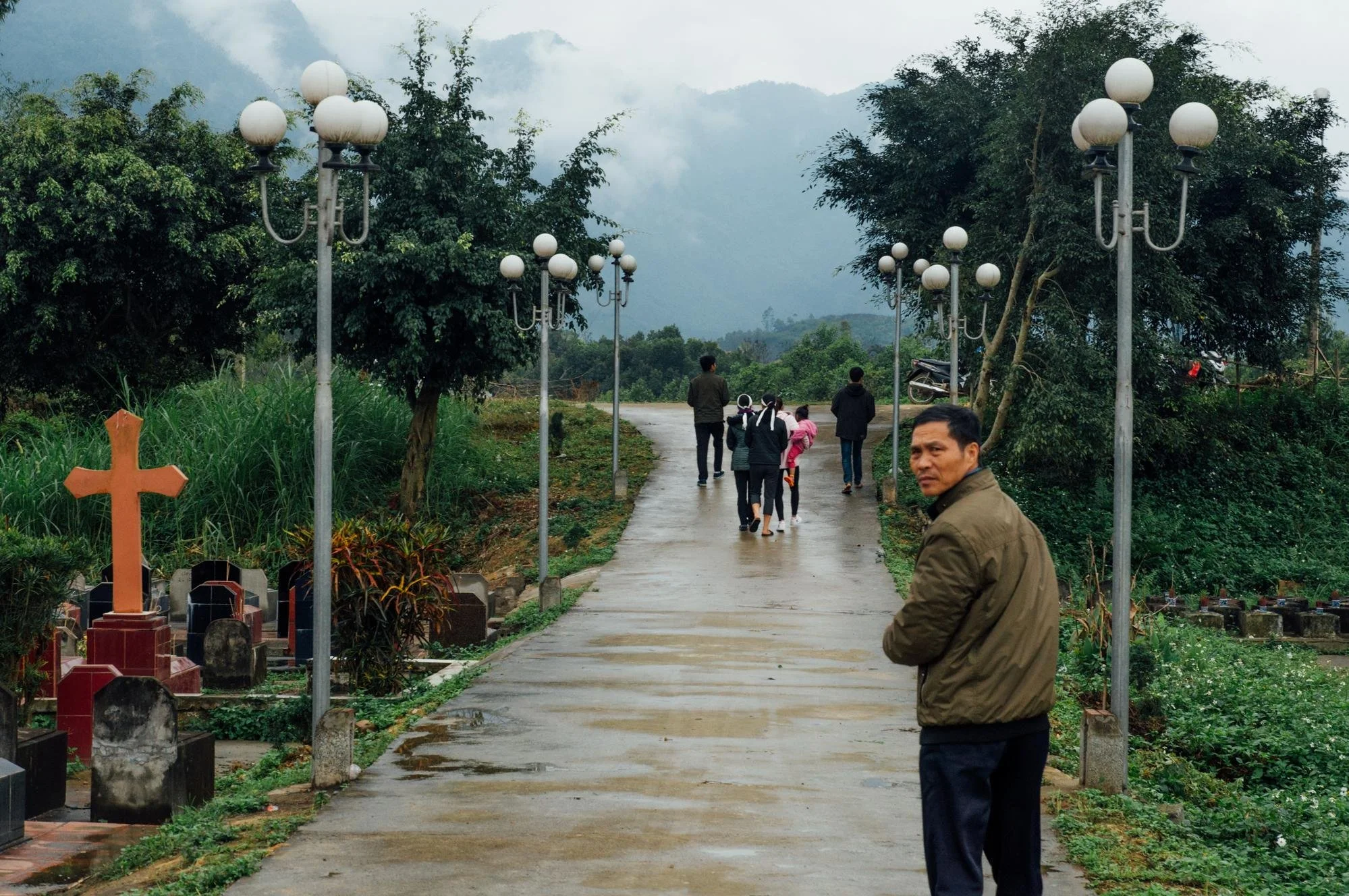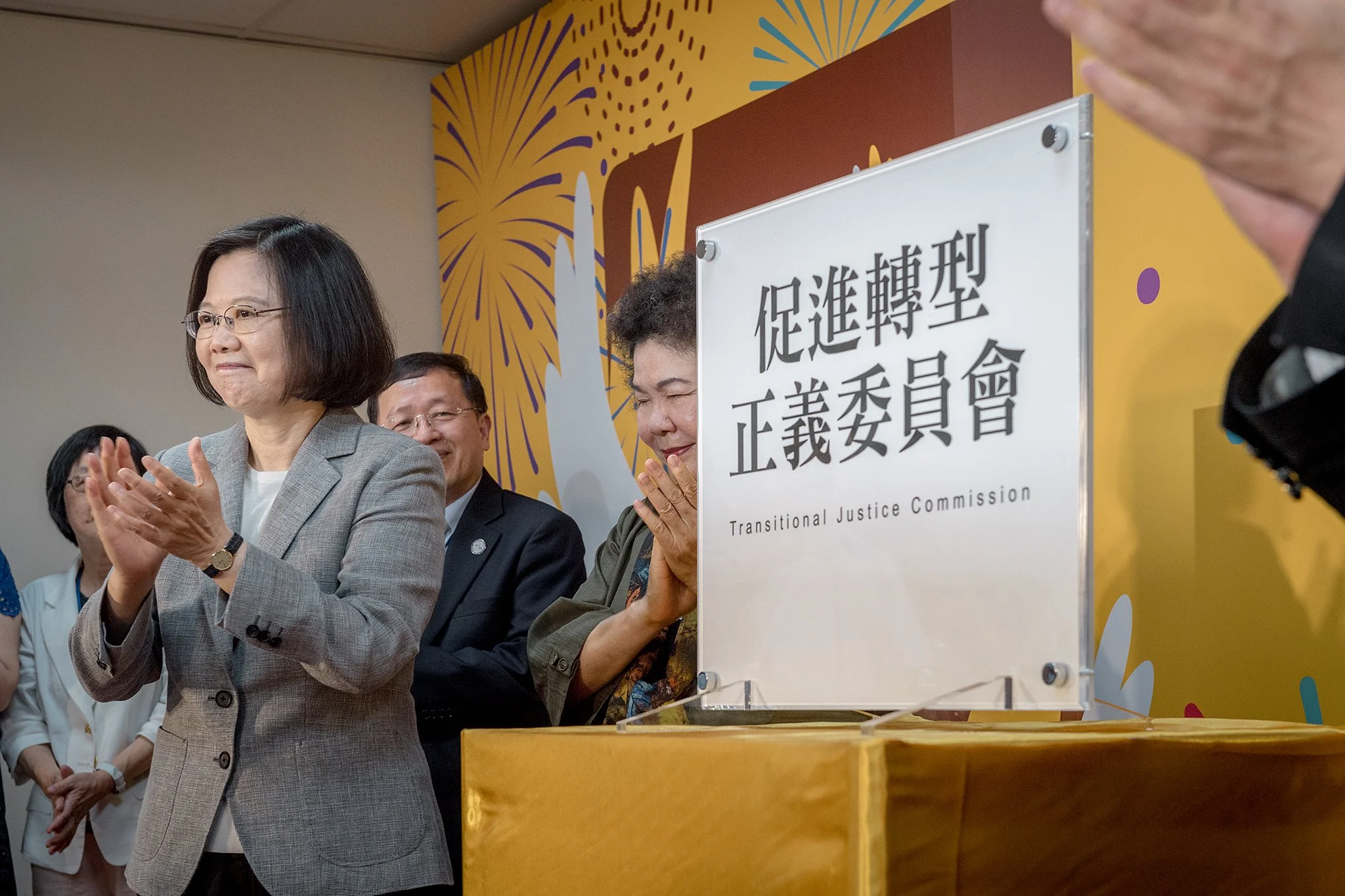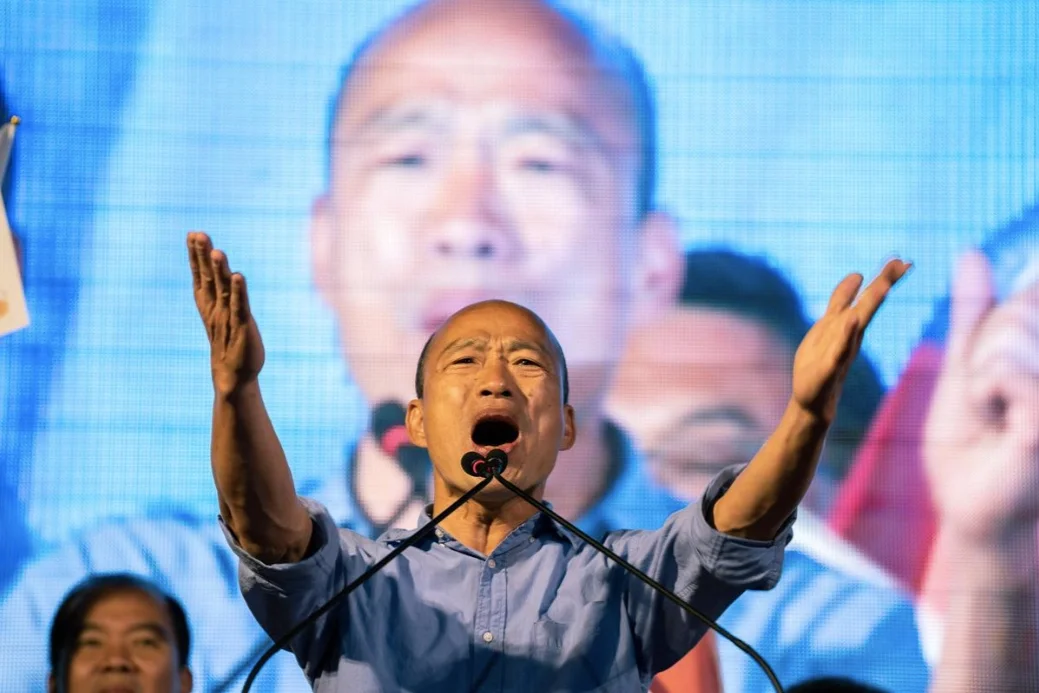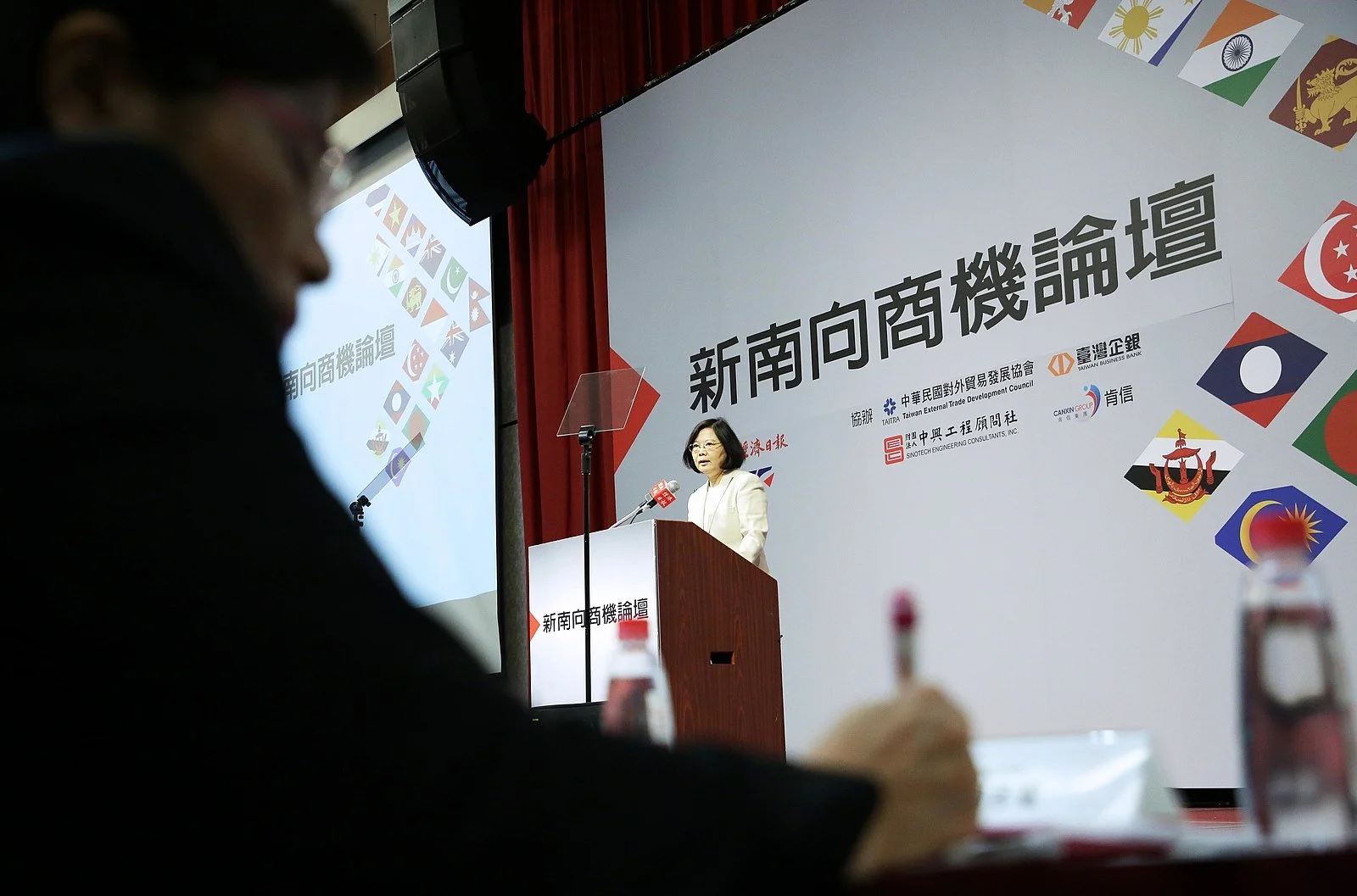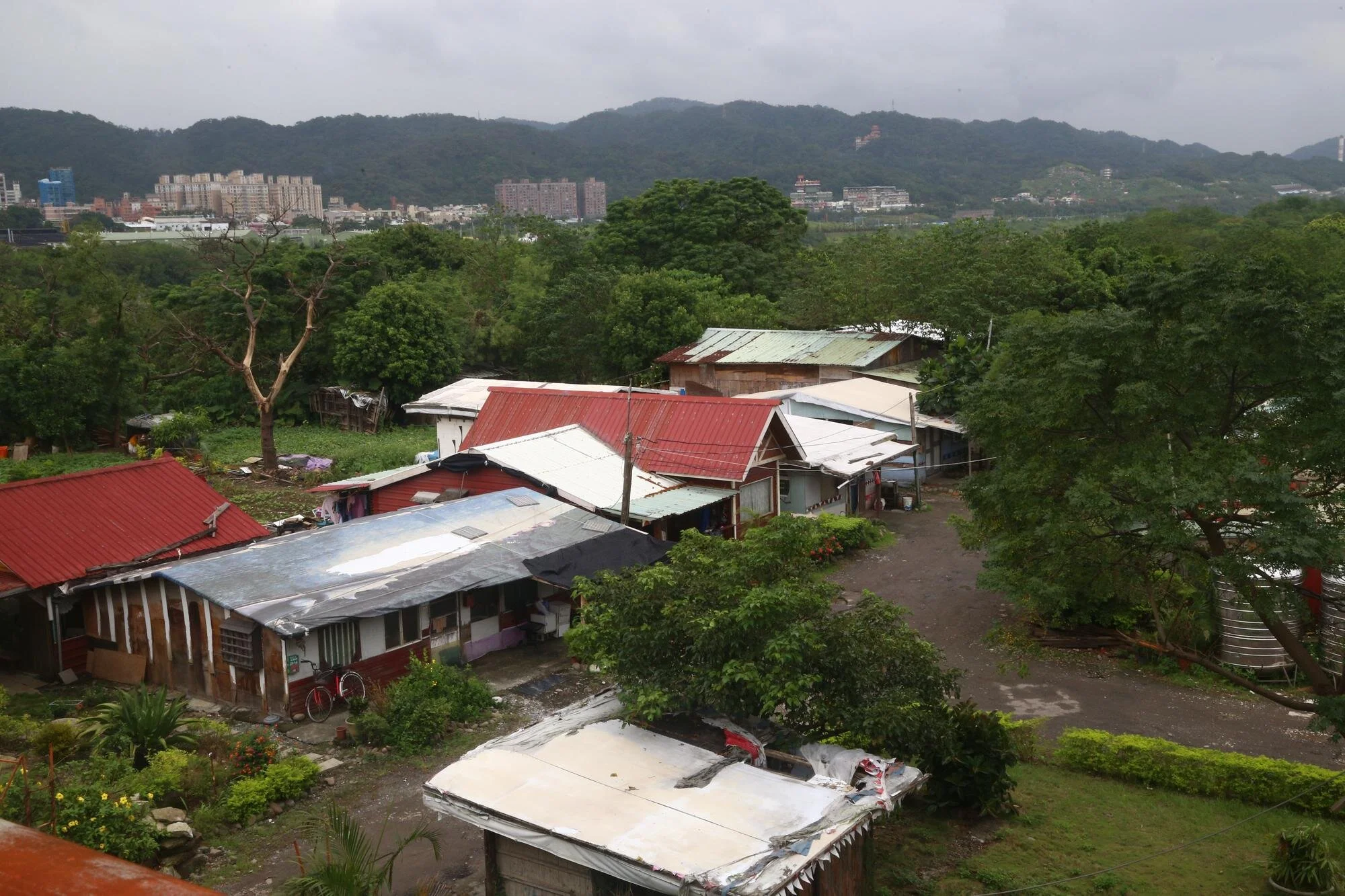The Taiwan Gazette translates and publishes original reporting from Taiwan, Hong Kong and China. Our goal with the platform is simple: We want original reporting from the Sinosphere to have a wider impact on global civil society.

SOCIETY
LABOR
Featured
In late August 2015, Indonesian fisherman Supriyanto died on a Taiwanese distant water fishing vessel, only three months after setting sail. December 15, 2016, The Reporter published the series “Fraud, Exploitation, and Blood on the High Seas,” tracking this case of “death from illness” which the Pingtung District Prosecutors Office speedily concluded within two months, unveiling the suspected mistreatment on the vessel, and the process of trafficking Indonesian fisherman to Taiwan by the shipowner and an agency. After the Control Yuan’s correction and the press' numerous reports, Pingtung District Prosecutors Office soon relaunched the investigation.
In May 2018, one and a half years after, the investigation showed progress. Under the assistance of labor unions from both Taiwan and Indonesia, a fisherman who worked on the same vessel with Supriyanto arrived in Taiwan and gave testimony in court. The testimony not only helped the prosecutor clarify the situation on board then, but also became one of the few successful callings of a foreign witness in the criminal cases.
It wasn’t until Nguyễn Văn Chac sat down on the airplane, that he finally had time to settle down, and talk to his brother.
In the early morning of 14 December 2017, his 20 year-old brother, Nguyễn Văn Trãi, died in a fire in the factory dormitory that he was staying at in Taoyuan’s Luzhu district - just a week before they were due to go see the Christmas tree again.
We are pleased to discuss with Professor Lan her research on migrants, parenting, and second-generation children in Taiwan. Reflecting on her academic journey, in Part 1, Professor Lan discusses how her research on migrant workers has evolved over the years. She also offers insightful analysis of how migrant workers navigate the changing landscape of Taiwanese society during the COVID-19 pandemic.
Simon Lee, a street sleeper and practitioner of what is now known as the “lying flat” movement, passed away in December 2021. Hong Kong photographer Ko Chung Ming had the chance to document the bits and pieces of Simon’s life and his way of engaging with the social world.
Before the lifting of martial law in 1987, the research, preservation, and promotion of Taiwan literature in Taiwan either failed to receive organized institutional support or was subsumed under a China-centered historiographical perspective. The establishment of Taiwan literature as a field of academic inquiry became possible thanks to the political liberalization of Taiwanese society and the emergence of a “Taiwan consciousness” since the 1980s. What might be the challenges and possibilities facing the field of Taiwan literature, then and now? What might be the new directions of the field? This interview features as part of our special issue: Encountering Everyday Life: Taiwan in Museums.
Last year, the Taiwan Railways Administration imposed a ban on public sitting in the lobby of Taipei Main Station, citing COVID-19 concerns. This sitting ban raised urgent questions: Who has claims over this space? What might be the historical and ideological forces shaping the usage of this space? And why is Taipei Main Station associated with the signs of “Free China” and the rise of “Little Indonesia”?
In our second feature for the 2020 Big Ideas Competition: Exploring Global Taiwan series, award recipient Pranav Dayanand makes a case for what TikTok can tell us about the complex state of Indonesian migrant worker affairs in Taiwan.
What is the “Taiwan Model” for COVID-19 and why is it considered a success? Taiwan Gazette Deputy Editor Elizabeth Shaw introduces how, with a population of over 23 million people, Taiwan has had a total of only 851 cases since the start of the pandemic.
A Taiwanese fishermen recruitment agency was charged in Cambodia with one of the most serious cases of human trafficking in the country’s history. The Taiwanese government wants to forget all about it.
Made up of five migrant workers from Indonesia, boy band “The Mandalas” is using music to bridge the gap between local Taiwanese and the country’s growing South-east Asian community.
CIVIL SOCIETY
ALL
How have Taiwan’s civil society responded to the limits of state-organized transitional justice initiatives?
Simon Lee, a street sleeper and practitioner of what is now known as the “lying flat” movement, passed away in December 2021. Hong Kong photographer Ko Chung Ming had the chance to document the bits and pieces of Simon’s life and his way of engaging with the social world.
Taiwan’s response to the COVID-19 pandemic is often applauded internationally as a success story, yet it has only been possible because of Taiwan’s strong medical profession and vibrant civil society. How did civil society engagement contribute to Taiwan’s pandemic response?
Though short-lived for just less than four years, the Ren Jian (Human World) magazine, founded in 1985, was like a legend, shedding light on countless dark corners of Taiwanese society and revealing the wounds of the land in Taiwan before and after the lifting of martial law. With its powerful photographs and writings, it defines the core of in-depth investigative reportage. For more than 30 years, Ren Jian has been mentioned every now and then, commemorated through various exhibitions, conferences, or awards, including the Outstanding Contribution Award bestowed by the 2021 Taiwan International Documentary Festival (TIDF). The Reporter meets with former Ren Jian employees and interviews them about their personal perspective of what the magazine means for their lives and for the era.
The field of Taiwan history has gained increasing visibility in academia, both in Taiwan and abroad. Yet the production and dissemination of Taiwan-related knowledge in Taiwan before the lifting of martial law in 1987 faced great difficulty. How did the institutionalization of Taiwan history as an academic field in and of itself changed the way we approach Taiwan history? This interview features as part of our special issue: Encountering Everyday Life: Taiwan in Museums.
2022年1月6日,香港民主派初選大搜捕屆滿一週年。面對身處港版《國安法》陰霾下的香港,臺灣的轉型正義經驗有什麼參考的價值?我們很榮幸能訪問黃丞儀教授,探討臺灣解嚴三十多年來轉型正義進程與中華民國憲政體制之間錯綜復雜的關係。在訪談中,黃教授將由法律與政治的辯證過程,討論當前臺灣轉型正義面臨的種種問題、對歷史真相的還原,以及對未來的展望。
July 1, 2019 is the 2nd anniversary of the occupation of the Legislative Council in Hong Kong’s Anti-Extradition Bill movement and the 1st anniversary of Taiwan’s investment of national resources in providing humanitarian aid to Hongkongers in exile. Two years after Taiwan’s assistance of Hong Kong, official relations between the two have seemingly ceased as the political situation in Hong Kong continues to deteriorate. Amid geopolitical uncertainties, how can Taiwan continue to help Hongkongers?
In February 2020, the first physical diasporic Hongkonger magazine —Flow HK (如水), or “Be Water” in Chinese—was printed in Taiwan. In terms of its significance to the pro-democracy movement, this magazine is a living embodiment of an imagined Hong Kong community under the shadow of the Hong Kong National Security Law. The Reporter interviewed the editorial board of Flow HK to find out why they decided to publish in Taiwan and how they intended to keep the current of the Hong Kong protests flowing across borders.
Last year, the Taiwan Railways Administration imposed a ban on public sitting in the lobby of Taipei Main Station, citing COVID-19 concerns. This sitting ban raised urgent questions: Who has claims over this space? What might be the historical and ideological forces shaping the usage of this space? And why is Taipei Main Station associated with the signs of “Free China” and the rise of “Little Indonesia”?
The Taiwan Gazette screened the documentary film Our Youth in Taiwan from March 8 to 14, 2021. We sat down with University of Toronto Professor Michelle Cho to discuss Taiwan-China geopolitical relations and the usage of “worlding” within the context of the film.
“Kabar Ma Kyay Bu” (ကမ္ဘာမကြေဘူး), also translated as “We Won't Be Satisfied Until the End of the World”, is the Burmese-language anthem of Myanmar’s 1988 pro-democracy movement. On February 6, protestors sang this anthem in Taiwan’s “Little Burma”, showing overseas support to their detained leader Aung San Suu Kyi and other arrested political figures. Many see the latest military coup as a serious hindrance to Myanmar’s road to democracy since 2011.
Chen Meihua, professor of sociology at Sun Yat-sen University, says misogynist speeches by KMT candidate Han Kuo-yu not only scared away women’s votes, but also the youth vote.
The Gazette sits down with Lin Fei-fan to discuss the impact of the Sunflower Movement, running for political office, and the future of Taiwan’s “Third Force” parties.
POLITICS
Featured
In February 2020, the first physical diasporic Hongkonger magazine —Flow HK (如水), or “Be Water” in Chinese—was printed in Taiwan. In terms of its significance to the pro-democracy movement, this magazine is a living embodiment of an imagined Hong Kong community under the shadow of the Hong Kong National Security Law. The Reporter interviewed the editorial board of Flow HK to find out why they decided to publish in Taiwan and how they intended to keep the current of the Hong Kong protests flowing across borders.
On February 26, 2021, the Chinese General Administration of Customs unexpectedly announced a ban on imports of Taiwanese pineapple starting from March 1. March is the export season for Taiwan's famous Golden Diamond Pineapple. The Chinese ban came as a shock to the Taiwanese industry. How did Taiwan’s overreliance on the Chinese market come to be? Who gets to decide the fate of Taiwanese pineapples?
The Taiwan Gazette screened the documentary film Our Youth in Taiwan from March 8 to 14, 2021. We sat down with University of Toronto Professor Michelle Cho to discuss Taiwan-China geopolitical relations and the usage of “worlding” within the context of the film.
2021 marks the tenth anniversary of Mainland Chinese students (lusheng) pursuing degrees at Taiwan's higher education institutions. However, in fall 2021 China’s Ministry of Education will suspend their enrolment. How might we address the changing political economy that shapes and contests policies for lusheng? What will become of these students? Introducing the second piece of our special series: Lusheng in Taiwan: Contradictions and Anticipations.
According to a source in the Ministry of Foreign Affairs, WHO head Tedros says Taiwanese web users are to blame for the rise in criticism directed at the WHO.
In 2013, Tsai Ing-wen wrote a letter to the youth of China about the 228 Massacre, and expressed her hope for a future democratic China.
Chen Meihua, professor of sociology at Sun Yat-sen University, says misogynist speeches by KMT candidate Han Kuo-yu not only scared away women’s votes, but also the youth vote.
In Taiwan, after election night, candidates have one final task: an elaborate thank-you tour, performed in person. For some this can take weeks. But what’s this all for?
Puma Shen says China could use Russian-style online disinformation campaigns in the run-up to Taiwan's 2020 Presidential Elections.
Veteran journalist Nojima Tsuyoshi says Japan paid more attention to the 2018 local elections in Taiwan than any other. He gives three reasons why Taiwan’s populist wave will have a big impact on Taiwan-Japan relations.
One of Taiwan's most astute political watchers dissects the results of the 2018 local elections.
Chen Si-hao says the Christian church strangled the same-sex marriage debate in Taiwan. Do LGBTQ groups have any hope of clawing back the discussion space?
Kaohsiung was supposed to be a DPP stronghold. So why did Kaohsiung residents plunk for the KMT’s Han Kuo-yu in this year’s election?
The Concentric Patriotism Alliance has evolved from an anti-communist organization to become Taiwan’s most zealous supporter of unification.
Chieh Chung says that the passing of the Taiwan Travel Act is not only a sign that Washington is dissatisfied with Beijing, but is also an attempt to break new ground on Taiwan-US relations.
Forty years after the Zhongli Incident, former DPP chairman Hsu Hsin-liang revisits Taiwan's first step towards democracy.
Lu Chen-wei says studying in China helps Taiwanese youth change stereotypical perceptions. But does the same apply to their own political identities?
SDP leader and Taipei mayoral candidate Fan Yun says 2018 will be a turning point for small political parties in Taiwan.
The Gazette sits down with Lin Fei-fan to discuss the impact of the Sunflower Movement, running for political office, and the future of Taiwan’s “Third Force” parties.
For Taiwanese who emphasize “family values”, the call for marriage equality is suspicious.
GENDER
Featured
In October 2022, a graduate student workshop was conducted with Professor Jung. In the workshop, Professor Jung shared his experiences of conducting field research in multiple Asian countries, as well as his journey as an international student and Asian scholar in North America and his involvement with queer activism and scholarship.
In October 2022, a graduate student workshop was conducted with Professor Jung. In the workshop, Professor Jung shared his experiences of conducting field research in multiple Asian countries, as well as his journey as an international student and Asian scholar in North America and his involvement with queer activism and scholarship.
In October 2022, a graduate student workshop was conducted with Professor Jung. In the workshop, Professor Jung shared his experiences of conducting field research in multiple Asian countries, as well as his journey as an international student and Asian scholar in North America and his involvement with queer activism and scholarship.
We are pleased to discuss with Professor Lan her research on migrants, parenting, and second-generation children in Taiwan. In this last part, Professor Lan discusses her experiences in public sociology and shares some tips for students engaging in Taiwan Studies.
We are pleased to discuss with Professor Lan her research on migrants, parenting, and second-generation children in Taiwan. Part 2 focuses on Professor Lan’s study on parenting. She shares her framework of transnational relational analysis, which overcomes the pitfall of methodological nationalism, and her experiences publishing her parenting study in English and Chinese.
We are pleased to discuss with Professor Lan her research on migrants, parenting, and second-generation children in Taiwan. Reflecting on her academic journey, in Part 1, Professor Lan discusses how her research on migrant workers has evolved over the years. She also offers insightful analysis of how migrant workers navigate the changing landscape of Taiwanese society during the COVID-19 pandemic.
The Taiwan Gazette interviews Taiwan-based cultural studies scholar Chien-ting Lin to discuss how Taiwan’s treatment of Mainland Chinese students (lusheng) during COVID-19 can be understood in terms of war and love. Divided into two parts, this interview is the fourth piece of our special series: Lusheng in Taiwan: Contradictions and Anticipations.
Chen Meihua, professor of sociology at Sun Yat-sen University, says misogynist speeches by KMT candidate Han Kuo-yu not only scared away women’s votes, but also the youth vote.
Chen Mei-hua says Taiwan's 2018 referendum questions on same-sex marriage and gender equity were unconstitutional.
Chen Si-hao says the Christian church strangled the same-sex marriage debate in Taiwan. Do LGBTQ groups have any hope of clawing back the discussion space?
With the upcoming marriage equality referendum on everyone’s mind, Pride Parade-goers were asked to “vote for the rainbow”.
Director Huang Hui-chen discusses her new documentary, an auto-biographical film about her relationship with her lesbian mother.
The Gazette sits down with sociologist Yu Wei-hsin to discuss the changing landscape of marriage and parenting in Taiwan.
For Taiwanese who emphasize “family values”, the call for marriage equality is suspicious.
Writer Fan Kanghao says that LGBT advocacy should not be limited to fighting for marriage equality.
From animal rights protection to defending same-sex marriage, Buddhist Nun Shih Chao-hwei says we should “put ourselves lower, and open ourselves more”.
Taiwan’s most prominent LGBT activist makes an impassioned plea for marriage equality in Taiwan’s highest court.
Taiwan’s long road to LGBT equality started with one man, Chi Chia-wei.
Will Taiwan’s same-sex marriage law lead to a domino effect of similar legislation in the rest of East Asia? We spoke to a number of Taiwan thought leaders intimately involved in the debate.
How are supporters of same-sex marriage responding to critics of Taiwan’s future marriage equality law? We asked a number of Taiwan’s thought leaders for their take.
The Gazette sits down with Howard Chiang of UC Davis to talk about about LGBT rights issues in Taiwan, and his new book “Perverse Taiwan”.
SPACE
Featured
Simon Lee, a street sleeper and practitioner of what is now known as the “lying flat” movement, passed away in December 2021. Hong Kong photographer Ko Chung Ming had the chance to document the bits and pieces of Simon’s life and his way of engaging with the social world.
In Taiwan, many school campuses are said to have been built upon the site of public cemeteries. This article will probe into the mystery of school campuses by looking at the history of public cemeteries and the founding of several schools in Taipei City.
Before the lifting of martial law in 1987, the research, preservation, and promotion of Taiwan literature in Taiwan either failed to receive organized institutional support or was subsumed under a China-centered historiographical perspective. The establishment of Taiwan literature as a field of academic inquiry became possible thanks to the political liberalization of Taiwanese society and the emergence of a “Taiwan consciousness” since the 1980s. What might be the challenges and possibilities facing the field of Taiwan literature, then and now? What might be the new directions of the field? This interview features as part of our special issue: Encountering Everyday Life: Taiwan in Museums.
Last year, the Taiwan Railways Administration imposed a ban on public sitting in the lobby of Taipei Main Station, citing COVID-19 concerns. This sitting ban raised urgent questions: Who has claims over this space? What might be the historical and ideological forces shaping the usage of this space? And why is Taipei Main Station associated with the signs of “Free China” and the rise of “Little Indonesia”?
Taichung's historic railway station closed down in 2016. In its final week of operations, writer Chen Hung-pai visited the station to pay her respects.
The Sanying Amis helped build the city of Taipei. The government thanked them by tearing down their homes. But a new model of ownership could help to make things right.
For migrant labourers in Shenzhen, living in an “urban village” is the only affordable option. But now even that is under threat.
After Tama Talum was sentenced to prison for hunting wild game, there were no more shotguns fired at Takimi hamlet, and the sound of cicadas enveloped the tribe.



